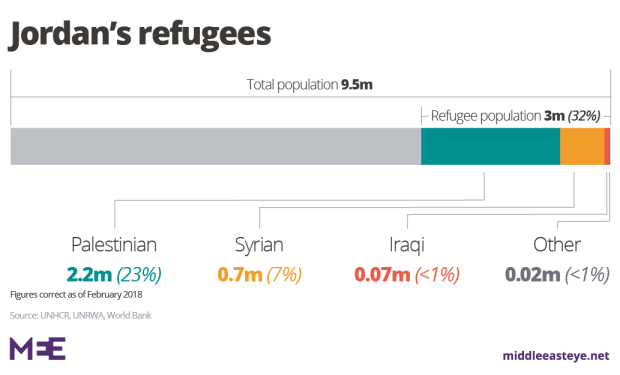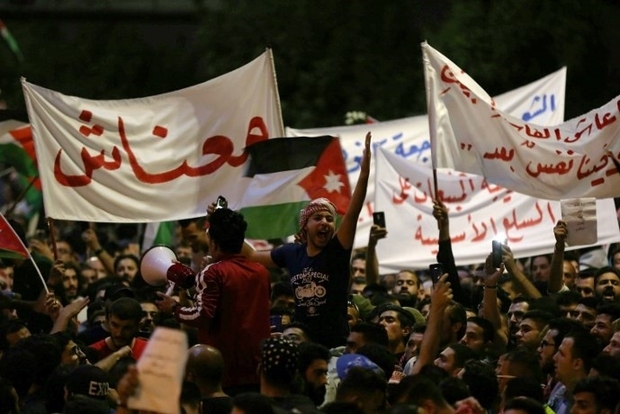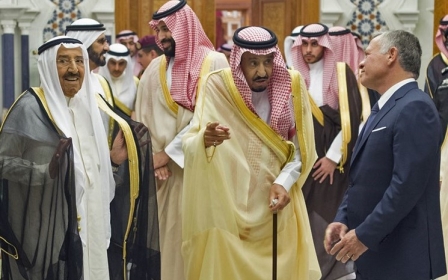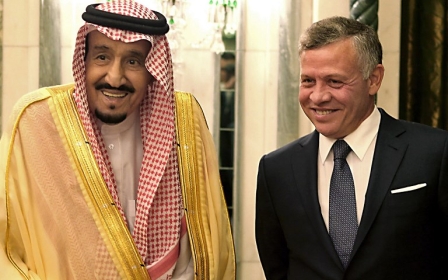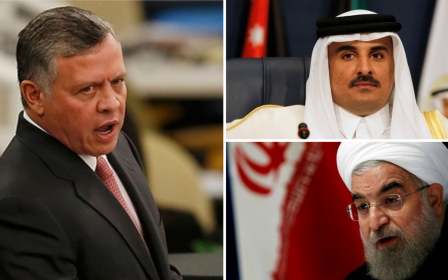The cost of chaos: Why Assad's Daraa offensive worries Jordan
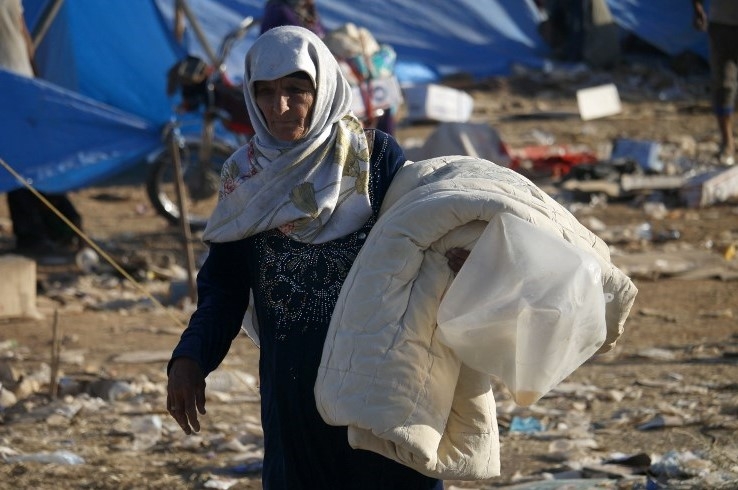
There are growing fears in Jordan about the repercussions of the Syrian regime's military offensive in Daraa. With the end seemingly in sight and with the Syrian regime and Russia seemingly winning the battle, Jordan is bracing itself for what comes next.
Several reports say that Jordan has been engaged in mediation talks between the warring parties. The Hashemite Kingdom wants to reach an agreement that stops the fighting spilling over its borders and it wants to see the situation on those borders stablilised.
In less than two weeks of fighting, the Syrian army has already captured large parts of the eastern Daraa province, and several more towns still under opposition control have reportedly agreed to settle with the regime.
Jordanian mediation
Clearly, Jordan has a vested interest in limiting the extent of the fighting and ensuring conditions on its border do not deteriorate significantly.
During the summer of 2016, Jordan's concerns over any military move in southern Syria increased following a suicide attack that took place on a Jordanian army base in the Rukban camp, on the border between Jordan and Syria. The attack killed seven people and highlighted the problem of a security vacuum existing in the border lands.
The issue of refugees, though very important for Jordan, represents a great embarrassment for a country that maintains good relations with all Western powers and human rights sponsors
Daily newspaper Al-Ghad, formerly edited by the current minister and spokeswoman for the Jordanian government, Jumana Ghanimat, spoke of a Jordanian mediation effort that took place over the past few days between representatives of the Syrian opposition and their Russian counterparts.
However, negotiations remain deadlocked, which explains why the border crossing remains closed in the face of the hundreds of thousands of Syrian refugees fleeing Daraa.
The issue of refugees, though very important for Jordan, represents a great embarrassment for a country that maintains good relations with all Western powers and human rights organisations. However, there are several factors that inform the Jordanian position on the deteriorating situation in Syria, and particularly in the areas adjacent to the border.
Major concerns
Jordan has three main concerns when considering Assad's military escalation in Daraa: a new wave of refugees, security threats and demographic vacuum.
There are more than 270,000 Syrian refugees, according to the United Nations, who have fled the violence in Daraa. Most of those who fled the shelling from the eastern side of the province made their way to the border with Jordan, or the border with the Israeli-occupied Golan Heights.
Jordan already hosts more than 650,000 UN-registered Syrian refugees, while government sources say the real figure is up to double that number. According to the Jordanian government and media, many of the Syrians in Jordan have not registered officially as refugees, while thousands of others hold the status of asylum seekers.
However, the real problem is that Jordan believes the world has given up on the refugees and cut funds for hosting them. As well as Syrians, more than 2 million Palestinian refugees live in Jordan. Earlier this year, the US government announced that it was cutting its funding to the United Nations agency for Palestinian refugees by more than half, a move decried by UK Labour leader Jeremy Corbyn on a recent trip to Jordan.
Funding cuts like this impact on Jordan. An official document issued by the Jordanian ministry of planning and international cooperation stated that the presence of Syrian refugees has cost the country $13bn from the beginning of the crisis in 2011 to the end of 2016.
Jordan also fears it might have to go through a similar experience to that of Turkey. The bloody conflict in northern Syria led to the flight of 3.4 million Syrian refugees to Turkey. With the international community putting pressure on Jordan to re-open its borders, which have been closed for weeks, there are fears in Amman that the continuation of fighting in southern Syria could see Jordan turn into a Turkey of the south.
The cost of chaos
Secondly, there are serious concerns about the deteriorating security situation on the borders. Jordan has had two important experiences with terrorism. The first was with the bloody hotel bombings of "Black Wednesday", on 9 November 2005. The attacks were the result of the security vacuum in Iraq caused by the US invasion and subsequent occupation.
Jordan paid a heavy cost for the chaos. The second experience is the "Rukban attack", which was carried out by a member of Islamic State (IS), who in the summer of 2016 sneaked in with Syrian refugees to Jordanian territory and managed to carry out an attack. These experiences suggest that Jordan pays part of the cost for wars in the region and the collapse of security in neighbouring countries.
Thirdly, a Jordanian source, who is now stationed at the Jordanian-Syrian border, told me that there are also fears of a systematic demographic change in the Syrian areas where fighting is currently taking place. There is growing concern that the area will be emptied of its Sunni population and Syrians, who are loyal to Bashar al-Assad's regime and his backers, will be brought in instead.
This demographic change could eventually lead to the strengthening of Iranian influence in the areas closer to Jordan, which have strategic ties with Iran's regional and international rivals, including the United States, Saudi Arabia and the Gulf states, and Israel.
In light of these facts, Jordan finds itself in a difficult position. It needs peace and stability in southern Syria, especially in light of the economic crisis that led to a wave of protests last month. The protesters forced the king to intervene in order to dismiss the prime minister, cancel the income tax bill, and cancel a government decision to raise fuel prices.
As a result, Jordan will most likely keep its Syrian border closed and will resist international pressure to give access to refugees, especially if there is no new direct financial aid. That means we are going to see the humanitarian crisis escalate on the border unless - of course - a peace agreement is reached immediately.
- Mohammad Ayesh is an Arab journalist currently based in London.
The views expressed in this article belong to the author and do not necessarily reflect the editorial policy of Middle East Eye.
Photo: Displaced Syrians from the Daraa province fleeing shelling by pro-government forces are seen in a makeshift camp to cross the Jordanian border, near the town of Nasib, southern Syria, on 2 July, 2018 (AFP)
New MEE newsletter: Jerusalem Dispatch
Sign up to get the latest insights and analysis on Israel-Palestine, alongside Turkey Unpacked and other MEE newsletters
Middle East Eye delivers independent and unrivalled coverage and analysis of the Middle East, North Africa and beyond. To learn more about republishing this content and the associated fees, please fill out this form. More about MEE can be found here.



